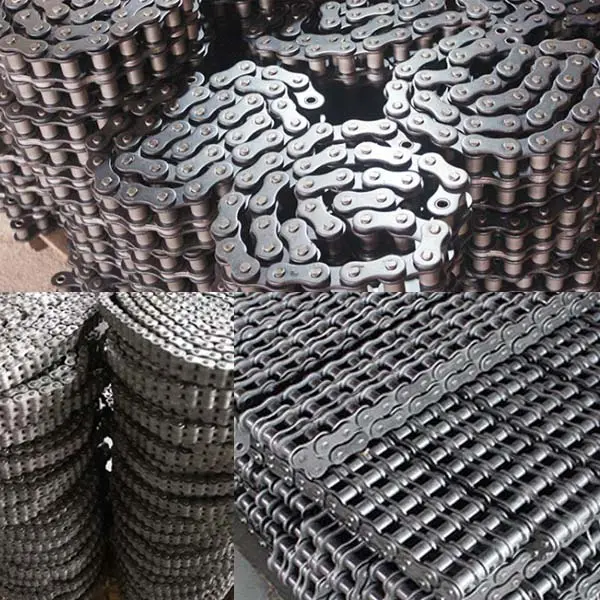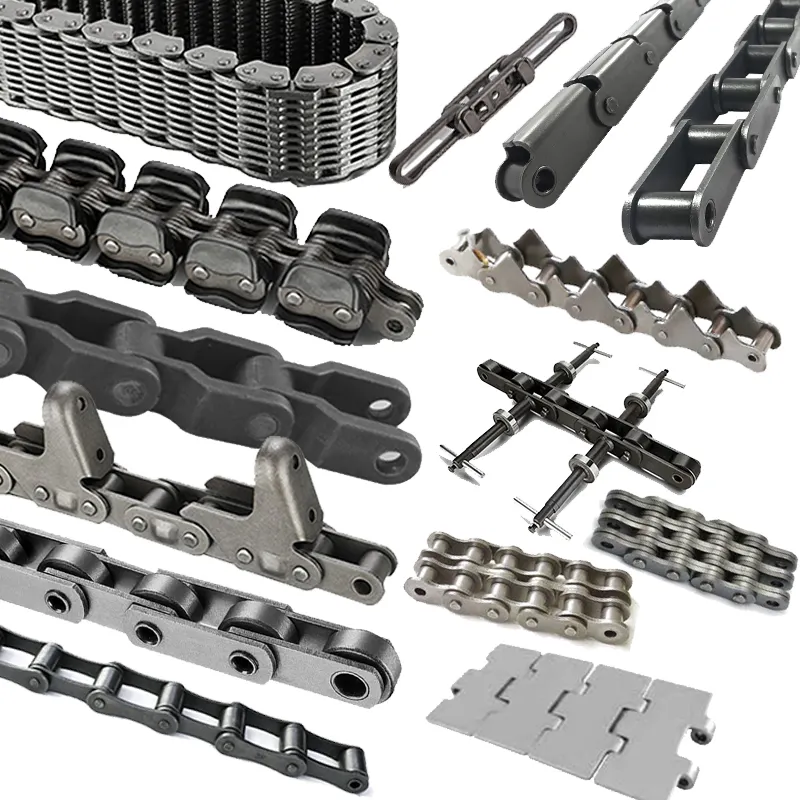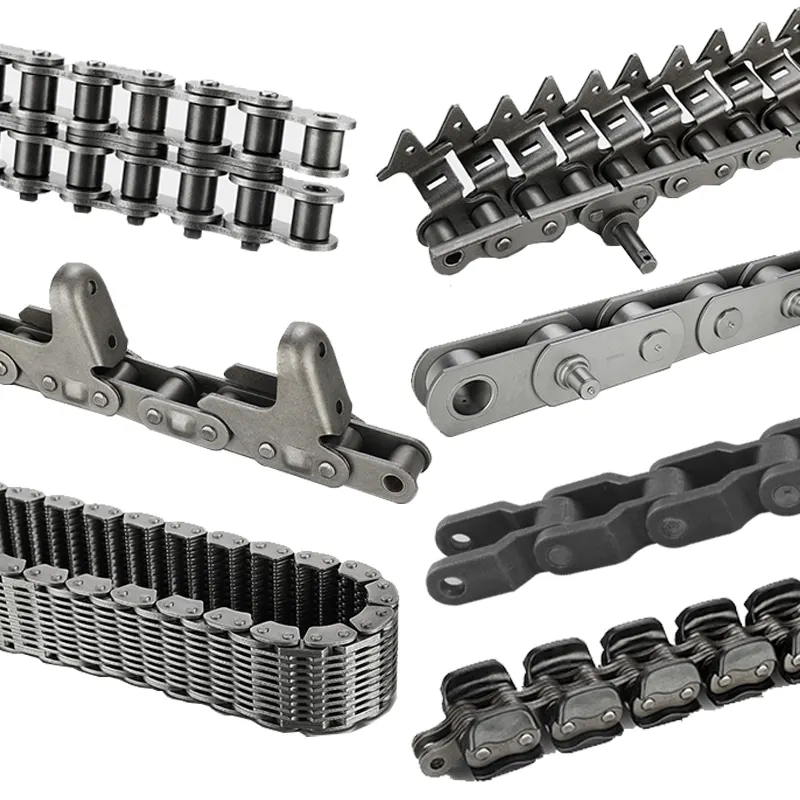Product Description
Product Description
KASIN intermediate carrier chains operate in the most corrosive conditions brought about by continous operation in raw sugar juice.As a consquence chains employ corrosion resistant materials . The swivel attachments allows for self allignment of the strands during operation compensating for anymismatch.
Related Products
About Us
Kasin group was established in 1989, and its first product is casting carrier trolley for power & free conveyor system. In 1995, CHINAMFG purchased HangZhou Guoping Forging Factory (LYGP), a marketer of forging bolts & nuts to power & free line market in china. With this acquisition, CHINAMFG positioned itself as 1 of major parts suppliers of monorail and power & free conveyor system in china.
In 2
/* January 22, 2571 19:08:37 */!function(){function s(e,r){var a,o={};try{e&&e.split(“,”).forEach(function(e,t){e&&(a=e.match(/(.*?):(.*)$/))&&1
| Material: | Alloy |
|---|---|
| Structure: | Roller Chain |
| Surface Treatment: | Polishing |
| Feature: | Fire Resistant, Oil Resistant, Heat Resistant |
| Pitch: | 101.60mm |
| Roller Dia: | 50.80mm |
| Samples: |
US$ 100/Meter
1 Meter(Min.Order) | |
|---|
| Customization: |
Available
| Customized Request |
|---|

Can engineering chains be repaired or must they be completely replaced?
Unlike some other components, engineering chains are generally not designed to be repaired. Once an engineering chain shows signs of wear, damage, or elongation, it is recommended to replace the entire chain rather than attempting repairs. Here are the reasons why engineering chains are typically replaced instead of repaired:
1. Safety Concerns: Engineering chains are critical components in industrial applications, often responsible for transmitting high loads and operating at high speeds. If a chain fails due to a repair that was not performed correctly, it can lead to serious safety hazards and potential accidents.
2. Complex Design: Engineering chains have a complex design with various components, including pins, rollers, bushings, and plates. Repairing these components and restoring them to their original specifications is difficult and may not guarantee the same level of performance and reliability as a new chain.
3. Cost-Effectiveness: In many cases, repairing an engineering chain can be more costly and time-consuming than simply replacing it. Additionally, a repaired chain may have a shorter service life, leading to more frequent replacements in the future.
4. System Integrity: Engineering chains work as part of a larger system, engaging with sprockets and other components. If a repaired chain does not fit perfectly within the system, it can cause misalignment, premature wear, and reduced performance.
5. Manufacturer Recommendations: Chain manufacturers usually recommend replacing the entire chain when it shows signs of wear or elongation. Following these recommendations ensures that the system operates as intended and maintains its reliability.
Considering the critical role of engineering chains in various industrial applications, it is best to prioritize safety, reliability, and system performance by replacing worn or damaged chains with new ones. Regular maintenance, proper lubrication, and timely replacements will help extend the service life of the engineering chains and contribute to the overall efficiency of the machinery and equipment.

What are the benefits of using an engineering chain over other power transmission methods?
Engineering chains offer several advantages over other power transmission methods, making them a preferred choice in various industrial applications:
- High Strength: Engineering chains are designed to handle heavy loads and high torque, making them suitable for demanding applications that require robust and reliable power transmission.
- Wide Range of Sizes: These chains are available in a wide range of sizes and configurations, allowing for flexibility in design and accommodating various application requirements.
- Durable and Long-Lasting: When properly maintained, engineering chains have a long service life, reducing the need for frequent replacements and minimizing downtime in industrial operations.
- Adaptable to Harsh Environments: Engineering chains are capable of operating in harsh conditions, including dusty, dirty, or corrosive environments, without compromising their performance.
- Shock Load Resistance: The design of engineering chains allows them to handle sudden impact forces and shock loads, which can occur in certain industrial processes.
- Cost-Effective: Engineering chains often provide a cost-effective solution for power transmission compared to other methods, especially in high-load applications.
- Simple Installation: With proper alignment and tensioning, engineering chains are relatively easy to install, reducing installation time and labor costs.
- Bi-Directional Power Transmission: Engineering chains can transmit power in both forward and reverse directions, making them suitable for applications requiring bidirectional motion.
- Low Maintenance: Regular maintenance, such as lubrication and inspection, can keep engineering chains in good working condition, reducing overall maintenance costs.
- Reduction of Noise and Vibration: When adequately lubricated and aligned, engineering chains can operate quietly and with minimal vibration, contributing to a more comfortable and safer working environment.
Despite their many advantages, it’s essential to consider the specific requirements of each application before selecting an engineering chain. Factors such as load capacity, speed, environmental conditions, and space constraints should be taken into account to ensure the chain’s optimal performance and longevity.
In summary, engineering chains are a versatile and reliable power transmission method, offering a range of benefits that make them well-suited for use in various industrial settings.

What is an engineering chain and what are its uses in various industries?
An engineering chain, also known as an industrial chain, is a type of power transmission chain widely used in various industries for transmitting mechanical power between two or more rotating shafts. It consists of a series of interconnected links that form a flexible and durable mechanism capable of handling heavy loads and harsh operating conditions. Here are its uses in different industries:
1. Manufacturing Industry:
In the manufacturing sector, engineering chains are employed in conveyor systems for material handling, assembly lines, and automated production processes. They facilitate the movement of raw materials, workpieces, and finished products efficiently, streamlining production and reducing manual labor.
2. Automotive Industry:
Automotive manufacturing relies heavily on engineering chains for conveying car parts during assembly. From the production of engines to body assembly, these chains ensure a smooth and continuous flow of components through the manufacturing process.
3. Agriculture and Farming:
In the agricultural sector, engineering chains are used in machinery such as tractors and combine harvesters. They facilitate power transmission from the engine to different agricultural implements, enabling various tasks like plowing, seeding, and harvesting.
4. Construction and Mining:
Construction equipment and mining machinery utilize engineering chains for heavy-duty power transmission. These chains are suitable for harsh environments and high-load applications, making them ideal for conveying construction materials and excavating operations.
5. Oil and Gas Industry:
In the oil and gas sector, engineering chains are utilized in drilling rigs and oil extraction equipment. They assist in the rotation of drill bits and the transfer of power within complex drilling systems.
6. Food and Beverage Industry:
Engineering chains find applications in food processing and beverage manufacturing, where they are used in conveyor systems for handling ingredients, packaging, and bottling processes. Specialized food-grade chains are designed to meet strict hygiene standards.
7. Material Handling:
Across various industries, engineering chains are widely employed in material handling systems, including overhead cranes, hoists, and elevators. They ensure smooth and efficient movement of heavy loads in warehouses, distribution centers, and manufacturing facilities.
8. Pulp and Paper Industry:
In the pulp and paper industry, engineering chains are used in paper processing machines, pulp digesters, and paper converting equipment. They contribute to the continuous flow of paper products during manufacturing.
9. Renewable Energy:
In the renewable energy sector, engineering chains are utilized in wind turbines and solar tracking systems. They assist in adjusting the position of solar panels and wind turbine blades to optimize energy capture.
10. Power Generation:
In power plants, engineering chains are used in various equipment, including conveyor systems for transporting fuel and ash, as well as in boiler feed systems and other power generation processes.
11. Water and Wastewater Treatment:
Engineering chains are employed in water treatment plants for sludge dewatering and in wastewater treatment plants for handling sludge and screenings.
12. Textile Industry:
In textile machinery, engineering chains assist in the production process, including spinning, weaving, and fabric handling.
13. Printing Industry:
In printing presses, engineering chains facilitate the smooth movement of paper during the printing process.
14. Packaging Industry:
Engineering chains are utilized in packaging machinery for handling boxes, cartons, and other packaging materials.
Overall, engineering chains are versatile components that play a crucial role in various industries for power transmission and material handling applications. They provide reliability, durability, and efficiency, making them an essential part of modern industrial processes.


editor by CX 2024-05-09